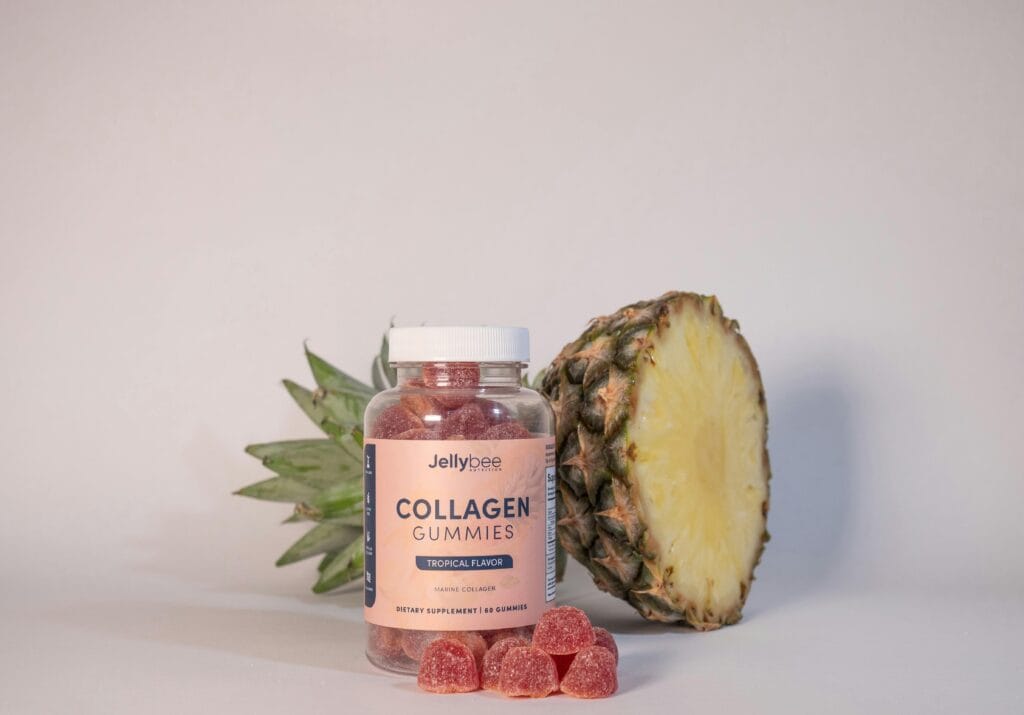FREE SHIPPING OVER $50
Think Collagen Is Just Hype? These Skin, Hair, and Joint Results Say Otherwise

It’s fair to be skeptical. Collagen supplements have exploded across the vitamins and supplements landscape, promising everything from youthful skin to pain-free joints. Whenever a product reaches this level of popularity, the natural reaction is to wonder if it’s all just clever marketing and fleeting hype. Many people assume that consuming protein means the stomach breaks it down completely, making any specific health claim irrelevant.
However, modern nutritional science and clinical studies are painting a very different picture. The specific way collagen peptides are processed—known as hydrolysis—allows them to survive digestion and be directly absorbed, signaling the body to ramp up its own collagen production. The results seen across multiple clinical trials and anecdotal reports for skin, hair, and joints are compelling enough to make even the most dedicated skeptic reconsider their stance. Let’s dive into the science that explains why this supplement isn’t just a trend—it’s a foundational component of modern anti-aging and wellness.
The Skeptic’s Challenge: Why Collagen Works Where Other Proteins Fail
The primary reason many people dismiss collagen supplements is the simple fact that the body digests all proteins into individual amino acids. So, how can taking a specific protein magically benefit your knees or your face? The key lies in the term “collagen peptides” or “hydrolyzed collagen.”
Hydrolysis is a process where the large collagen protein is broken down into small, short chains of amino acids. These chains are small enough that they are not treated as general food protein by the body. Instead, they are absorbed into the bloodstream as intact peptides.
Neuroscience reveals that these specific peptides, particularly glycine-proline-hydroxyproline (GPH), act as signaling molecules. When they circulate, they signal the fibroblasts (cells that make collagen) in your skin, cartilage cells in your joints, and cells in your bones, telling them to produce more of the body’s own natural collagen and other crucial components like hyaluronic acid and elastin. It is this signaling action, rather than simply supplying raw amino acids, that sets these supplements apart from a scoop of whey protein.
Skin Results: The Battle Against Wrinkles and Dryness
Collagen is the most abundant protein in the skin, providing the structural framework that keeps it firm, smooth, and resilient. After age 20, our natural collagen production decreases by about 1% per year, which directly contributes to sagging, wrinkling, and dryness.
The Mechanism of Youthful Skin
When you take collagen peptides, the signaling molecules travel directly to the dermis—the middle layer of the skin. Studies show that these peptides:
- Increase Hydration: They stimulate the production of hyaluronic acid, a molecule capable of holding up to 1,000 times its weight in water. This increased hydration makes the skin look plumper and reduces the visibility of fine lines.
- Improve Elasticity: They reinforce the skin’s structural matrix. Clinical trials consistently report improvements in skin elasticity and firmness, giving the appearance of smoother, more youthful texture.
- Reduce Wrinkle Depth: Consistent use has been shown to reduce the depth and severity of facial wrinkles by supporting the underlying structure of the skin.
Consequently, the difference between people who see positive skin results and those who dismiss collagen supplements often comes down to two factors: consistency (taking it daily) and type (using verified hydrolyzed peptides).
Hair and Nail Results: Strength from the Inside Out
While collagen’s role in skin is well-known, its benefit to hair and nails is a major factor in its rising popularity. Hair loss and brittle nails are common complaints associated with aging and nutritional deficiencies.
Why Hair Responds to Collagen
Your hair follicles are anchored in the dermis, and the strength of the hair is intrinsically linked to the health of the surrounding collagen matrix. Collagen also contributes to the structure of the nail bed, providing the necessary building blocks for growth and strength.
- Antioxidant Support: Collagen peptides can act as antioxidants, fighting the free radical damage that can harm hair follicles and contribute to premature aging and thinning hair.
- Amino Acid Delivery: The peptide structure is rich in amino acids essential for keratin production (the protein that makes up hair and nails). By improving the supply of these specific building blocks, collagen supplements often lead to stronger, less brittle nails and thicker, faster-growing hair.
Users often report seeing nail improvements first, sometimes within just a few weeks, followed by a noticeable reduction in hair loss and an increase in overall density after several months of consistent use.
Joint Results: Reducing Pain and Improving Mobility
Perhaps the most significant evidence that collagen is more than hype comes from the medical benefits related to joints. The cartilage that cushions your joints is largely made up of collagen (Type II in particular), and its degradation is the core cause of osteoarthritis pain.
Collagen and Cartilage Regeneration
Unlike skin or hair, the joints need targeted support. Research on both bovine (Type I and III) and specific cartilage-derived (Type II) collagen supplements has shown remarkable therapeutic effects:
- Pain Reduction: Collagen peptides have been shown to accumulate in the cartilage, stimulating the synthesis of the extracellular matrix. This action helps to rebuild and reinforce the joint’s cushioning, leading to a significant reduction in joint pain, stiffness, and discomfort, especially during exercise.
- Improved Mobility: By reducing pain and rebuilding cartilage, users often report improved physical function and increased mobility, allowing them to maintain active lifestyles, which is a key component of overall wellness.
In controlled studies, participants taking collagen supplements often require less reliance on pain-management medication and exhibit a greater range of motion compared to placebo groups. This makes collagen a serious nutritional tool for proactive joint health and injury recovery, not just a beauty secret.
The Takeaway: How to Cut Through the Hype
The reason collagen supplements have survived beyond the initial hype is simple: they deliver tangible results across the three most visible areas of aging—skin, hair, and joints.
However, seeing those results depends heavily on choosing the right product. To ensure you are getting the benefits and not just generic protein, always look for:
- Hydrolyzed Peptides: Ensure the label explicitly states the collagen is hydrolyzed or in peptide form. This confirms the protein has been processed for maximum absorption and signaling ability.
- Dosage and Consistency: Most effective studies use a daily dose of 10 to 15 grams. Collagen is a marathon, not a sprint; benefits are typically seen after 8 to 12 weeks of consistent daily intake.
- Source: Look for quality sources like grass-fed bovine or marine collagen, as these often provide the ideal balance of Type I and III collagen necessary for skin, hair, and overall wellness.
The science is clear: collagen supplements are much more than a trend. They are a bioavailable tool that actively supports the body’s aging processes, making them a powerful and necessary addition to any proactive health and fitness regimen.
Related Articles
- Dietitians Warn: These 5 Popular Supplements Could Be Shortening Your Lifespan
- The Silent Supplement Transforming Gut Health, Muscle Recovery, and Brain Power
- The “Cognitive Fiber” Secret: New Research Shows This Supplement SHARPENS Brains Over 60
- Weight Loss Supplement SCAMS: The 8 “Fat Burners” That FAIL (And Why You’re Wasting Money!)
- URGENT WARNING: 5 Supplements You MUST AVOID If You Have High Blood Pressure (Experts Reveal Why!)







